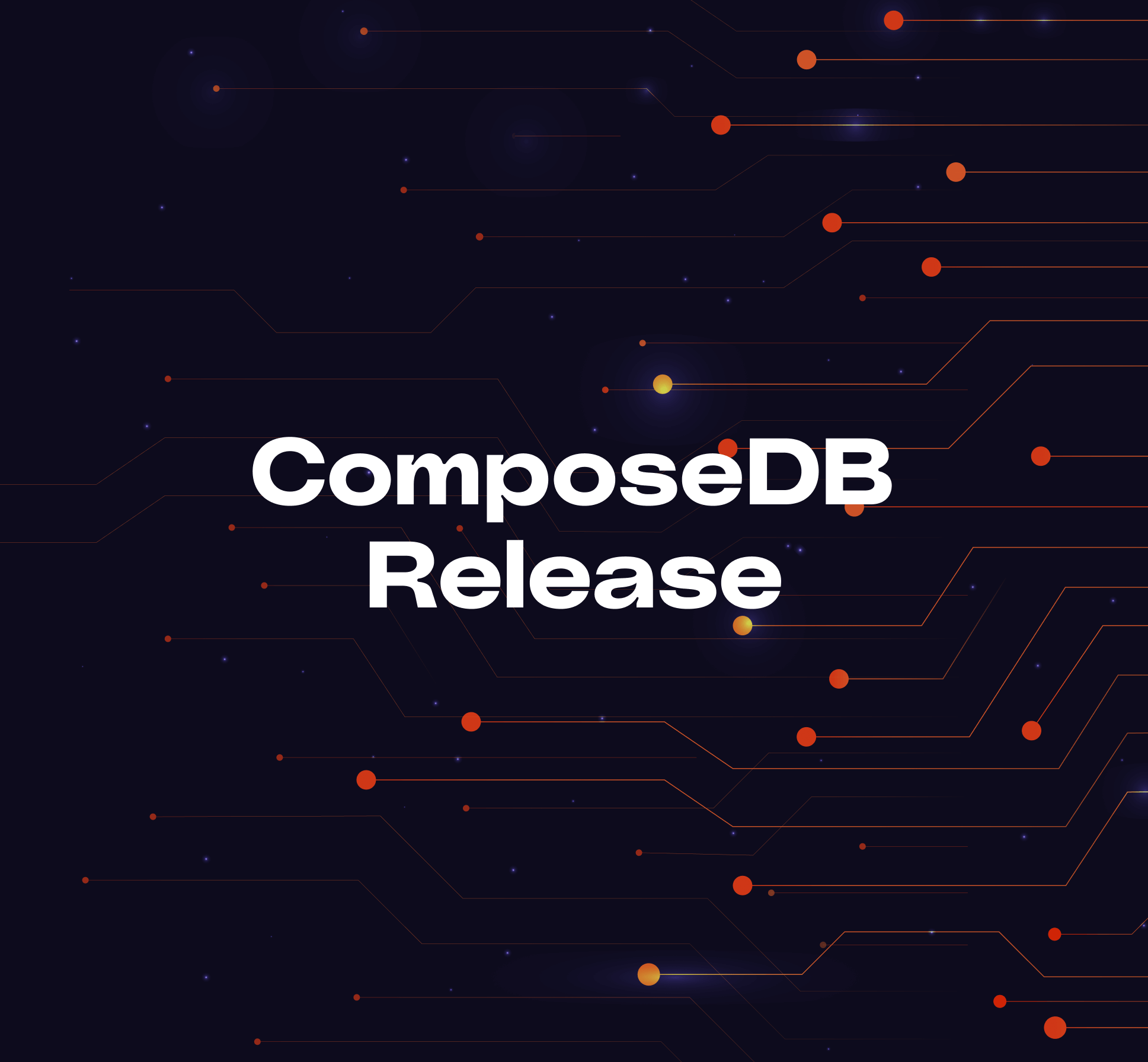ComposeDB Beta: Launching Soon
Beta will deliver a stable, feature-complete (with known limitations) version of ComposeDB with self-serve mainnet access.

In the next few weeks, the release of ComposeDB Beta will provide improved composability, usability, and offer more stability for developers building with Ceramic in production.
In September we introduced plans to build ComposeDB, a composable graph database powered by Ceramic. ComposeDB offers developers an easy and powerful way to build Web3 applications that run on Ceramic’s decentralized data network.
Beta will deliver a stable, feature-complete version of ComposeDB with self-serve mainnet access.
Application developers building on ComposeDB can:
- Plug into a rich ecosystem of interoperable data to bootstrap their application
- Build applications faster than ever before
- Scale data across applications
Across many use cases, including:
Social: Grow users and engagement with chat, DMs, follower lists, and social experiences that follows users across applications
Reputation: Add trust and usage with portable identity and reputation, including KYC, anti-sybil, and peer reviews
Collaboration: Enable users to collaborate across many platforms on content and knowledge
Database Storage: Store user and app data in a scalable, verifiable and decentralized database
Web3 is a Graph
Ceramic is a decentralized data network that powers an ecosystem of interoperable Web3 applications and services. Today Ceramic provides a protocol for decentralized event streaming to some of Web3’s largest projects, but after the release of ComposeDB developers will have more powerful tools to build applications across social, reputation, collaboration and database storage, in addition to Ceramic’s protocol capabilities.
Providing a fully decentralized and mutable data layer for applications solved the infrastructure challenges that many developers face; however, in order to help devs build data-rich apps on Ceramic and make the future of composability between apps a reality, Web3 devs needed more than fast write times and mutable storage within the network—they needed a product that could provide native query and an advanced property graph to map and manage the data layer.
Introducing ComposeDB on Ceramic
The core team behind Ceramic spent the past six months working with our community to build ComposeDB, the first decentralized graph database for Web3 applications.
Build faster
Historically, app developers must define the database layer from scratch for each application they build. With plug-and-play data models, ComposeDB eliminates the additional steps of data modeling and database schema design.
GraphQL
ComposeDB utilizes GraphQL for models and queries, enabling developers to intuitively express and explore graph relationships between entities. Unlike an SQL database there are no joins to worry about.
Sign In With Web3
Sign in With Web3 enables secure authentication for users with wallets from Ethereum, Solana, and other popular blockchains.
Plug into a data ecosystem
The cold-start problem prevents developers from reaching a critical mass of data to make their apps valuable to users, devs building on ComposeDB gain access to a rich ecosystem of interoperable data on day one.
Plug-and-play data models
ComposeDB includes a catalog of data models; when devs reuse models they gain access to the data sets stored in those models—allowing data to be shared across applications.
There will be about 5,000 models from over 300 contributors by the time Beta launches, different use cases include models for: blog posts, verifiable credentials, profiles, messages, follower lists, and more.
Scale data across applications
Since ComposeDB is built on Ceramic it’s designed for fast write times, high transaction volume, and permissionless data verifiability. Unlike value blockchains, Ceramic uses asynchronous, parallel transaction processing and eventual consistency to power the world’s largest data applications.
Stay tuned for more updates on our hackathon at EthDenver and please continue to provide your feedback about ComposeDB on the Forum.

